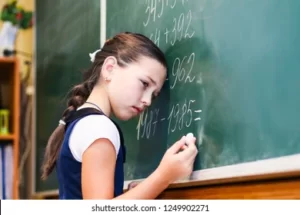In a country where a child’s intelligence and future are measured by their Mathematics and Science scores, and a generalised education system, the needs and abilities of a child are rarely considered. Apart from the social stigma surrounding learning disabilities, it is often difficult for parents to procure a certificate confirming the children’s condition.
Learning disability describes unexplainable difficulties for a person of at least average intelligence to excel in academics. Often a child’s inability problems with reading, mathematics, comprehension, writing, spoken language, or reasoning abilities are blamed on their disinterest in studies. So, many times the problem goes undetected, impeding the child’s progress and increasing the risk of anxiety, depression, low self-esteem, and peer rejection.
Understanding someone with Learning Disability
A child with a learning disability may be hyperactive, have trouble concentrating on a single task, and may have difficulty comprehending written words or following instructions. However, such a child is also someone with average to above average intelligence. Unlike their “normal” peers, they receive and process information differently, at their own pace.

There are 5 types of Learning Disabilities –
1. Dyslexia – this is the most commonly known learning disability where the student has difficulty reading and writing.
2. Attention deficit disorder (ADD) and attention deficit hyperactive disorder (ADHD) – Bother are attention difficulties with or without hyperactivity. These children have poor impulse control and trouble maintaining focus on any task.
3. Dysgraphia – these students have trouble with writing words, or even writing in a straight line. They have trouble maintaining margins or using punctuation marks.
4. Dyscalculia – these children have trouble processing numbers and even simple arithmetic can be challenging.
5. Dyspraxia – this is a motor skills difficulty. Here a child may have difficulty grasping a pen or pencil, playing a musical instrument or any sport
None of these Learning Disabilities is a sign of low intelligence
Some of the most successful people in their fields, who have earned world renown suffer from any of the above-mentioned learning disabilities. Actor Abhishek Bachchan, Daniel Radcliffe, Whoopi Goldberg, Olympic swimming champion Michael Phelps, world-famous chef Jamie Oliver, and Apple co-founder Steve Jobs are just a few names.
Students with learning disabilities can be helped by adopting holistic learning methodologies that are attuned to their needs. Subjects about language and math’s can be taught slowly and using techniques that will help the students grasp the concept.
Support by school and parents
The combined support in the classroom by the school and by parents can help small children and teens using exercises that utilize methodologies heavy with signs or aimed towards improving the child’s memory helps.
The NEP policy 2020 has acknowledged that most classrooms have children with learning disabilities, and they need continuous support so that they have equitable access to opportunities.
Alternative forms of schooling
The National Institution for Open Schooling (NIOS) is a part of the alternative schooling with tailored pedagogies provisioned in NEP 2020. Under this, the student will be given special support to integrate subjects and learning prescribed by NCFSE. Among the many benefits of the government, special financial assistance will be provided to schools for introducing Science, Mathematics, Social Sciences, Hindi, English, and the state language among other relevant subjects to the school curriculum.
Special teachers, who are subject matter experts and have knowledge about teaching children with special requirements are engaged in these schools to guide the children.
Every effort is being made towards sensitizing schools and society about learning disability conditions. The gradual increase in awareness through popular media and the availability of learning options is surely creating a better understanding of the term “learning disability”.
